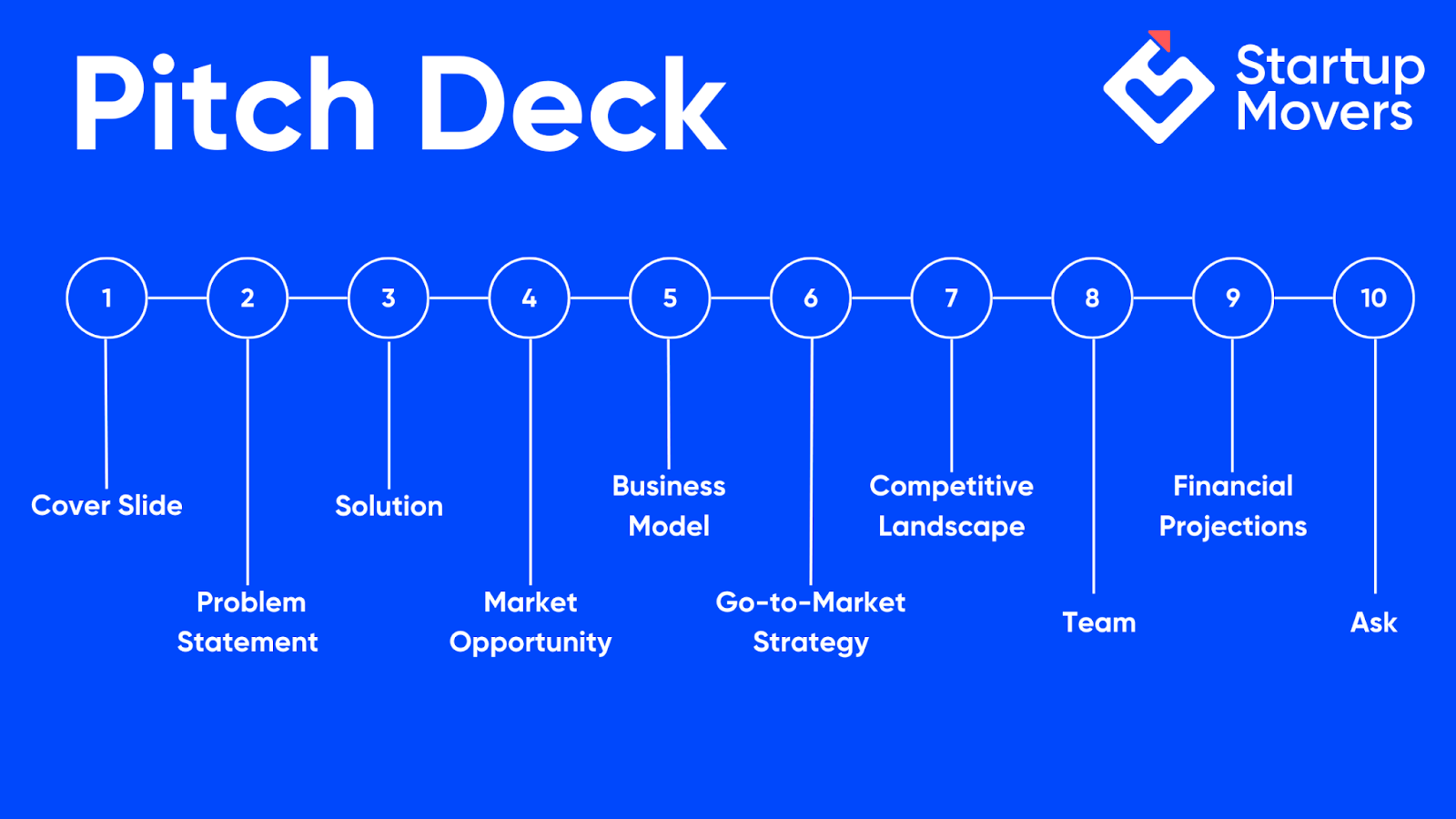If you're a startup trying to raise money, you've probably heard about a “pitch deck” in investor meetings or networking events. But what exactly is a pitch deck, and why is it so important? In this guide, we’ll explain what a pitch deck is, how to create one, and how it can help your startup succeed.
What is a Pitch Deck?
A pitch deck is a concise presentation that gives an overview of your business to potential investors. It’s your chance to tell your story, share your vision, and explain why your startup is worth their time and money. Typically, a pitch deck has 10-15 slides covering key parts of your business—such as your product, market opportunity, business model, team, and financial projections.
Think of it like your startup's business card to investors. In meetings where attention spans are short, your pitch deck needs to grab interest quickly. It's often the first impression investors get of your startup, so it's crucial to make it count.
Why is a Pitch Deck Important for Startups?
The startup ecosystem is growing rapidly, and many new businesses are seeking funding. A well-crafted pitch deck can help you stand out and secure that important investor meeting. Here’s why a pitch deck is essential:
- First Impression: Investors receive numerous proposals, and the pitch deck is often the first thing they see. A strong pitch deck can lead to more in-depth conversations.
- Tells Your Story: A good pitch deck explains what problem your startup is solving, why your solution is unique, and why now is the right time.
- Builds Trust: Investors need to believe in you. A well-prepared pitch deck shows that you have carefully thought through your business plan.
Key Elements of an Effective Pitch Deck

To create a successful pitch deck, you need to understand what investors are looking for. Here are the key slides every startup should include:
- Cover Slide: Start with your company name, tagline, and a strong brand image. First impressions are important.
- Problem Statement: Describe the problem you are solving. Be clear about why this problem matters, particularly if you're targeting a specific market.
- Solution: Present your solution and explain how it solves the problem. Highlight what makes your product or service better than others.
- Market Opportunity: Show how big the opportunity is. Include data specific to your market and explain how you plan to capture it.
- Business Model: Explain how your startup will generate revenue. Investors want to understand your revenue streams and how scalable your business is.
- Go-to-Market Strategy: Outline how you plan to reach customers. What marketing channels will you use, and how will you target your audience?
- Competitive Landscape: Identify your competitors and show what makes you different. Highlight your unique advantage and how you’ll gain market share.
- Team: Introduce key members of your team. Investors often invest in people as much as ideas—show why your team is the right one to succeed.
- Financial Projections: Provide a summary of your financials—include revenue forecasts, expected expenses, and key metrics.
- Ask: End with your funding needs. Clearly state how much money you’re raising and how you plan to use it.
Tips for Crafting a Winning Pitch Deck
- Keep It Simple: Focus on clarity. Avoid overloading slides with text—use visuals and bullet points instead.
- Know Your Audience: If you’re pitching to an investor who knows your market, use examples and data that resonate locally.
- Tell a Story: Investors love a good story. Frame your startup’s journey in a way that shows the challenges you’ve faced and the milestones you’ve reached.
- Practice Makes Perfect: A great pitch deck is only part of the equation—you need to deliver it confidently. Practice your presentation until you feel comfortable.
Common Mistakes to Avoid
- Too Much Technical Detail: Investors are more interested in the market opportunity and potential returns than the technical specifics of your product.
- Ignoring Competitors: Every startup has competition. Be honest about your competitors and show how you are different.
- Unrealistic Financial Projections: Avoid overpromising with your financial projections. Investors value realistic, achievable growth plans.
How to Get Started with Your Pitch Deck
If creating a pitch deck feels overwhelming, remember that it’s a process. At Startup Movers, we provide comprehensive support in making the perfect pitch deck for startups. You can work with our specialized team to create a pitch deck that resonates with investors. To connect with us and get started, visit our website or reach out directly.
Start by outlining the key elements mentioned above, and keep refining each slide until it tells your story effectively. If you need more help, Startup Movers offers services to help founders like you create pitch decks that stand out. With our experience working with startups, we understand what makes a pitch deck resonate with investors.
Conclusion: Your Path to Securing Startup Funding
A pitch deck is your key to securing startup funding. It’s not just about having a great product; it’s about clearly communicating your vision and convincing investors why they should bet on you. By focusing on clarity, storytelling, and a solid understanding of your market, you can create a pitch deck that grabs investor interest and sets your startup on a path to success.
Ready to take your startup to the next level?
Start building your pitch deck today with Startup Movers and make your startup dream a reality.
Contact US


Leave a Comment
Comments
No comments yet.
RECENT ARTICLES
GSTR-3B: Meaning, Benefits, Applicability, Due Date & Process
Setting Up ESOPs in Indian Startups: Step By Step Guide
Every Fundraising Term Founders Should Know (2025 Edition)
How to close a Registered Company? Step By Step Procedure!
GSTR-9 Annual Return: Complete Guide
Angel Syndicates in India (2025): How They Work for Early-Stage Founders?
Difference between Winding up and Strike off a Company
What is ESOP Meaning, Benefits & How do ESOPs Work?